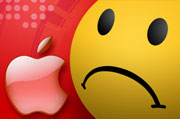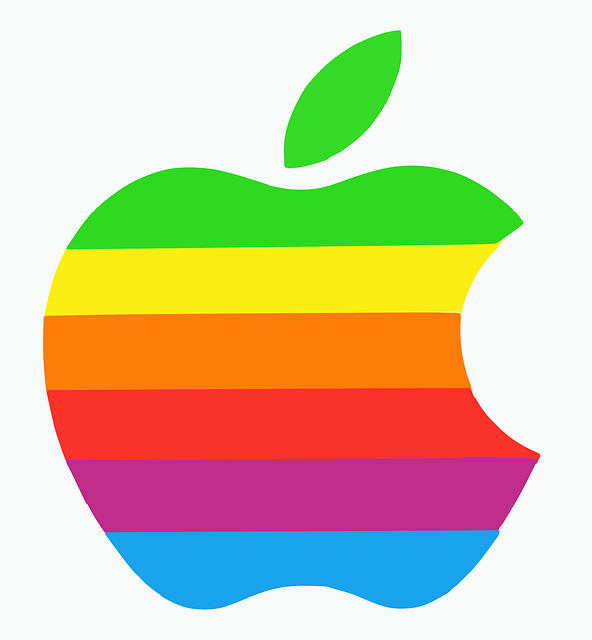 I am coining the acronym P.E.A.R (People Enraged by Apple Relations). Not just because Pears make a decent alternative to apples, but because mobilization and group think is an important part of rebelling against an evil empire. I think anti-Apple thinkers aren’t organized because our disdain of their policies and products is usually pretty obvious to us. It would only seem natural that other’s would feel the same way we do.
I am coining the acronym P.E.A.R (People Enraged by Apple Relations). Not just because Pears make a decent alternative to apples, but because mobilization and group think is an important part of rebelling against an evil empire. I think anti-Apple thinkers aren’t organized because our disdain of their policies and products is usually pretty obvious to us. It would only seem natural that other’s would feel the same way we do.
You will most likely notice a trend among watch enthusiasts that we all like variety. That is the whole point of owning more than one watch. Thus, because Apple requires pure uniformity among only proprietary devices and software, they do not allow for variety, and people who like watches are less likely to be Apple fans.
Apple is up to it again. Their newest war on the consumer; Engadget on Apple’s newest folly. It appears as though Apple is not only testing the limits of consumer acceptance, but also the law. Apple has made a decision, in their infinite wisdom, to only allow for credit card or check purchases of iPhones, and limit customers to two. What this means is that if you want to buy an iPhone, you cannot use cash, and good luck trying to buy more than two. It is unclear how they are going to enforce this, or how they are going to stop people from coming in again and again to buy more (to get over the 2 limit), but they are going to try. Getting around the policy is not the issue. The issue regards attempted enforcement and the mere initiation of the policy.
So why is Apple doing this? Well they feel like they are losing precious control over their products. How dare consumers buy their goods and not conform to Apple edict! Can you imagine what would happen if the legions of loyal Apple customers started thinking for themselves, and doing what they wanted their the products. I mean, we are talking scary possibilities. Apple does not want people unlocking and reselling iPhones. Which means what? People buying their product, using their product, but just doing it in a little different way. Sure there is a degree of money lost for Apple because they probably share revenue from AT&T’s service charges, but when it comes down to it, you need to at least preserve at least the illusion of consumer choice. Apple is doing everything they can to manipulate and control the market for their products. They have been sued by many other countries, especially in the EU, and now they are testing the limits of what American law and consumers will take. Nevertheless, Apple still feels, like an overbearing parent, that their way is best.
Legally speaking, first off, is the idea that they will not accept cash. Because they are a private company, the law here allows them to refuse cash and accept only certain types of legal tender, such as credit cards or checks. Laws such as this started in the 1950’s due to often obscure reasons. For example, the laws attempted to protect businesses from being forced to accept payments in all pennies. This law is now being used to allow Apple to reject cash whenever it likes.
The second issue is far more important, and that is the customer tracking. They want to make sure consumers are only buying two iPhones and not reselling them. So think to yourself, what would occur if they caught someone buying and reselling unlocked iPhones? The presumption, or at least the system which Apple is setting up, is more likely an identity and tracking system. Get the customer’s info, and track them; sounds like a totalitarian wet dream. No doubt that somewhere along the transaction of buying an iPhone they force you to agree not to unlock it, or something of that nature. So are they going to go after people that do so legally? Visit their homes to confiscate their contraband? We are allowing for a very uncomfortable level of power within Apple, who is creating a big brother scenario in relation to the purchase of consumer electronics! I would not stand for it, and I hope others do not as well. Not knowing their specific enforcement plan, I cannot comment on it’s legality. They have something planned I am sure, but it would really hard to enforce in this market. What they may try to do is attempt to license people an iPhone rather than sell them. When you are sold a product, other than not being able to violate the owner’s intellectual property rights, you can do whatever you want with it. A license however, provides a more limited framework of ownership. When you purchase software you are buying a license to us it, not a full our purchase. There are many gray area’s in the law of sales v. licenses, but the reality is that it is very difficult to enforce or even apply a license to a physical product such as an iPhone. The bottom line, is that once a consumer purchases an iPhone, Apple is not within it’s rights telling people what to do with it.
Because this purchase policy is new, time will only tell what Apple is going to do. They are throwing wrenches into what is supposed to be a free market system. They are abusing or pushing the limits of consumer protection and credit card laws. They are cultivating an ongoing series of anti-consumer policies and practices that they should not. Further, their business model is most likely a violation of anti-trust laws, and it is only a matter of time being their conduct goes to far.
For all they Apple does wrong, they do right in marketing and hiring clever lawyers. They would be stupid not to be a few steps ahead of their own game, but it is not beyond them to make decisions that have immediate effect and deal with the consequences later. For example, the price of the iPhone was $600 for the 8gb model when it first came out. Soon after the lowered the price to $400. They did this because they knew it would sell very well at first and that people would pay for it. Their consolation to the early adopters was a refund of $100 if they wanted. Regardless, they still paid at least $100 more than they needed to. This shows you how Apple plays the consumer field like a game, understanding that consumers can be herded like cattle, and are easily influenced by aggressive marketing tactics.
In the end, it is up to the educated consumer to deny Apple its smirks at the end of the day. If you know about good and fair business, then you won’t buy an Apple. If anything, for the message it sends to the market place. And what do many an Apple fan say in response? “I like my Mac, Apple can do whatever they way because they can.” I am not usually the activist type, but this level of consumer complacency angers and frightens me. Friends don’t let friends buy Apples.

